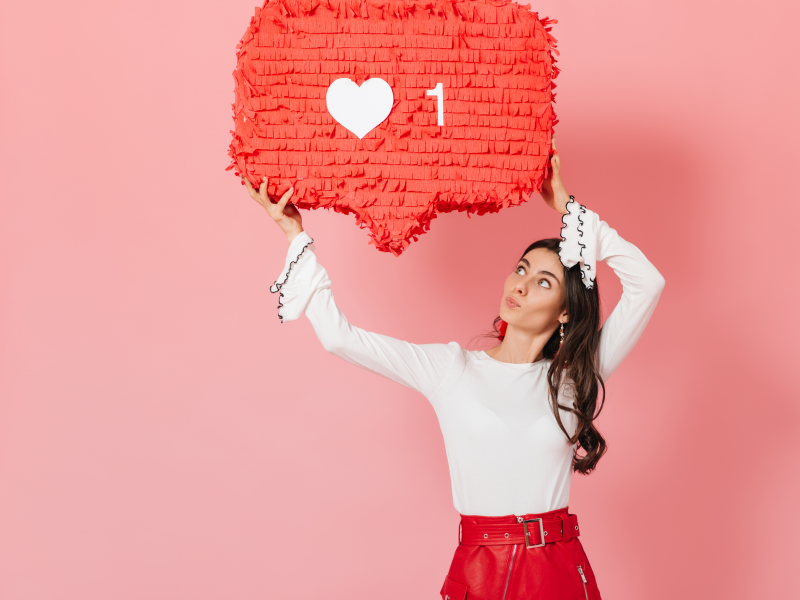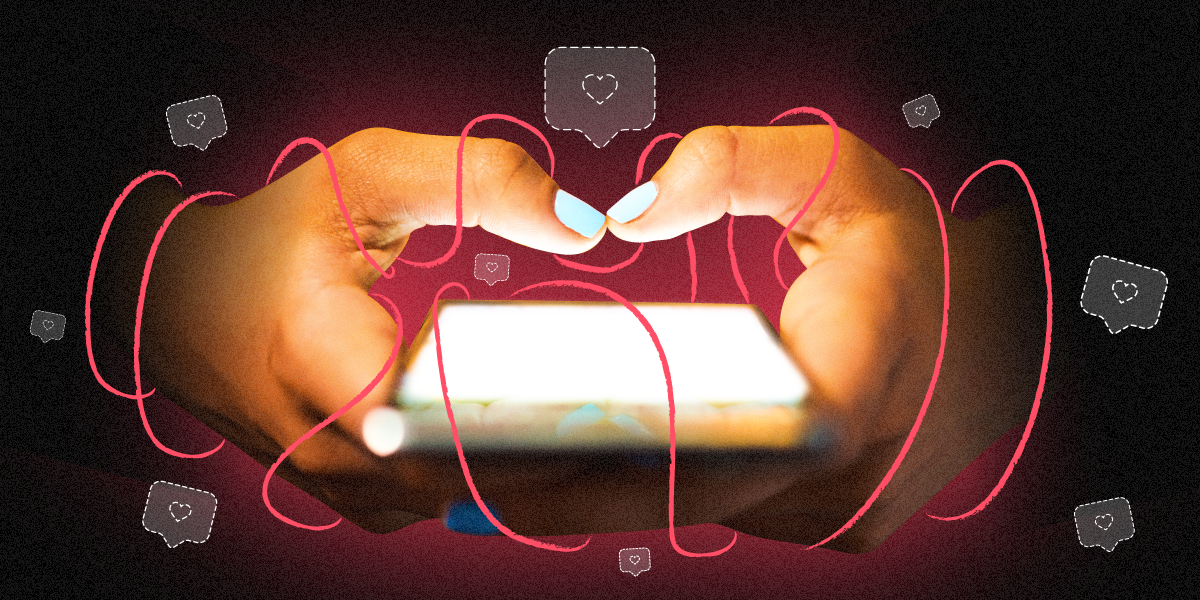- Instagram has been testing in some countries what its platform would look like without likes appearing on posts.
- The removal of likes is designed to improve the lives of consumers, but influencers are starting to feel the impact of the change on their accounts and their brands.
- But brands value “authentic” influencers who are their “true selves” more than engagement metrics such as likes, influencer marketers tell Business Insider.
- Influencers say it’s a catch-22: Instagram’s built-in algorithm values engagement for curating the posts that show up first in front of users, meaning that influencers – especially those that Instagram chose to remove likes from – have found their content is getting much less reach than ever before.
- Visit Business Insider’s homepage for more stories.
The easiest link that brings together social media’s wide range of consumers and influencers is a simple need: validation.
Instagram – one of those places for likes, comments, followers, and reblogs – has recently tried to curb that need. The platform has been testing out what it would look like without the “like” feature, claiming the feature will help to reduce its associated impacts on mental health and societal pressure. The “like” feature won’t be hidden completely; users can see the number of likes on their own posts, but not on others’ pictures and videos.
The results of the tested removal of likes are still being collected; the test only rolled out in July to some users in seven countries. But some consumers have started to share their reactions to the change. In a recent article for Huffington Post, affected users said they appreciated the less pressurized, more carefree version of Instagram without likes.
But for influencers in those countries, response to the change has been different. Although influencers Business Insider talked to haven't seen significant change yet to their business and brand deals, the idea of a like-less Instagram makes many of them nervous. Affected influencers have already noticed their posts are getting fewer likes and less engagement, pushing their posts farther down in Instagram's algorithmic feed. Some have expressed concerns it'll affect their reach and ability to grow on the platform.
Others say that the popularity-contest-style pressure associated with Instagram likes will just shift to another one of the many metrics measured on the platform.
"I really think that likes are just part of the platform," Canadian influencer Jess Grossman told Business Insider. "What can I do? It's a platform I'm using for free."
Fewer likes, more authenticity

The removal of likes rolled out two months ago in seven countries: Australia, Brazil, Canada, Ireland, Italy, Japan, and New Zealand. Almost immediately, influencers noted that their posts are accruing fewer likes than they used before the test started.
Kate Weiland, a Canadian influencer known for matching family outfits, said it's been a "bummer" to post a picture and not be flooded with the droves of likes and comments she's used to receiving. It's affected how she's able to evaluate her audience's interest in a post, which she uses to figure out what content she should keep posting or move away from.
Weiland's wildly intricate outfits and poses with her three kids and husband can take time to set up. But Weiland says she's found it a harder to put as much effort into the content when she can't get a good idea of what her fans even want.
"Likes are a motivation factor," Weiland told Business Insider. "Now there's no audience applause at the end of a performance. It's kind of like crickets in the background."
A recent research survey of Canadian influencers by #paid, a platform connecting brands with creators, found that more than half of influencers affected by the Instagram test have seen the number of likes drop on their posts. Over 50% of surveyed influencers have seen the growth of their follower counts slowed.
But while influencers are starting to worry, influencer agencies that secure brand deals and marketing campaigns don't seem to be as concerned about the effects of likes disappearing. Likes are only one of the several metrics used to evaluate an Instagram post's performance, says Mike Blake-Crawford, Social Chain's strategy director. Likes are only "surface-level," while metrics like engagement and click-throughs of URLs in posts show more about the relationship an influencer has with their audience.
"Likes are the currency of social media," Blake-Crawford said. "It's going to separate influencers who have trigger-happy followers ... versus the ones who have a real connection with their audience and have the trust element."
Instead of likes, influencer marketers say they care more about "authenticity." Sideqik CEO Jeremy Haile said the most important part of working with influencers is seeing who can actually build relationships with their audiences, and who can get fans to click on ad campaigns and purchase products that influencers put their backing behind.
So far, affected influencers who talked to Business Insider have not seen their partnerships with brands and request for ads decrease or disappear. But that hasn't stopped them from wondering how the removal of likes could stymie to growth of their brands as their engagement numbers continue to fall.
The catch-22 algorithm

A grievance raised in conversations with influencers revolved around a discrepancy between what Instagram has taken away with removing likes, and what the platform intrinsically values: engagement.
It's been more than three years since Instagram changed its order of posts in users' feeds, shifting from reverse-chronological to a feed based on what Instagram's algorithm thinks you personally want to see first when you open up the app. The algorithm, which dictates what appears first in your feed, is based on three things, according to Instagram:
- The likelihood you'll be interested in the content
- Your relationship with the person posting
- The timeliness of the post
Instagram's reason for changing its feed was to put a greater emphasis on users seeing posts from "friends and family," although it's not clear exactly who that group is. Instagram told Recode last year that users see 90% of posts from "friends and family" as a result of the new algorithmic feed means, compared with seeing only 50% of these posts in the reverse chronological feed.
But on the flip side, the Instagram algorithm de-emphasizes posts from brands and accounts you don't typically interact with. Instead, the way to get put in front of more people's eyeballs during the precious moments a user scrolls through their Instagram feed is through engagement, comprising of likes and comments.
"You're not getting the likes and you're not getting the reach, and your content is not going as far," said Grossman, one of the Canadian influencers. "You're taking away one of those pieces that is driving engagement, how is that algorithm going to work?"
Engagement, which includes likes and comments, are more important than ever in the algorithmic feed. That's where the catch-22 comes in: The "likes" feature is built into the fabric of what gets seen on Instagram, so influencers caught up in Instagram's experiment - who are getting fewer likes in turn - are seeing less reach and growth on their posts than ever before.
"Any artist's goal is to create work that people will see," Canadian influencer Reza Jackson told Business Insider. "By limiting that, it's jeopardizing our businesses."
Although influencers are the ones who could be most heavily impacted, a trickle-down effect of a like-less Instagram looks imminent. Influencers told Business Insider that without seeing likes on their own posts, they feel less incentivized to like and interact with other users' posts as well.
"I've started liking less, because what's the point?" Grossman said.
Read more: Instagram is mulling a new feature that would hide from others how many likes you get on your posts
The social media-depression connection

Adam Mosseri, the head of Instagram, told BuzzFeed News in April that the purpose of the like-less test is to create "a less pressurized environment where people feel comfortable expressing themselves."
However, the "like" feature, and the issues surrounding it, aren't something that exists solely on Instagram. It's something that plays out on essentially any social platform: Twitter favorites, Tumblr notes, Reddit upvotes, or TikTok hearts.
Instagram isn't the only platform to weigh the effects of like counts on users' mental health. Twitter CEO Jack Dorsey has said if he had to go back and redesign the platform, he "wouldn't even have a like count in the first place." Dorsey has floated the idea before of getting rid of the "like" button to ensure the platform is "incentivizing healthy conversation," but Twitter has denied that will happen anytime soon.
Facebook and YouTube have both also recently made moves to eliminate some popularity metrics from their platforms.
Several studies and numerous psychologists have found a link between the amount of time teens spend on social media and depression. Celebrities such as Selena Gomez and Demi Lovato have publicly spoken out about needing to take breaks from their social-media accounts in order to care for their mental health. Gomez has said social media has been "dangerous" for both herself and for teens.
Any number of people who have spent time on social media can attest to its addictive qualities, which are even apparent in this viral video of a chimpanzee mindlessly scrolling through an Instagram news feed.
Many have compared the battle for Instagram likes to an online popularity contest, and everyday consumers aren't the only ones who have noticed how much of a toll the constant comparison of likes can take. Savanna Mak, who describes herself as the "anti-influencer," has experienced first-hand the feelings of "worthlessness and not-enoughness" that can come with Instagram.
"You're not living the life you're supposed to be. You start to question whether you're good enough," Mak told Business Insider. "Being an influencer is asking a human being to show the world only the perfection of their life and who they are, at all times."

